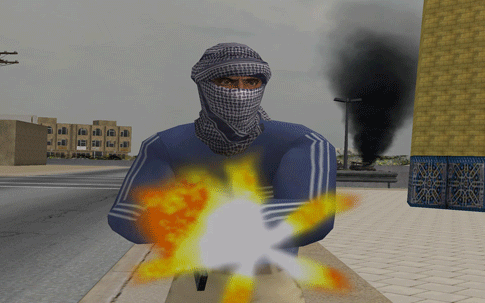To Hell and Back Again
A drug tested in virtual war may help soldiers recover from traumatic stress-- and could conquer everyday anxiety

Plenty of medications help people deal with fear, but the most effective one may be a humble antibiotic. Scientists testing a new treatment for veterans with post-traumatic stress disorder (PTSD) say the key to faster recovery might be a 50-year-old tuberculosis drug called
D-cycloserine, or DCS.
As part of a five-year Emory University study funded by the National Institute of Mental Health, veterans with PTSD take the drug or a placebo, don a virtual-reality helmet, and re-create their worst nightmares: rumbling down the road to Falluja, feeling the vibration beneath the seat, hearing the rat-a-tat of gunfire just before a bomb explodes. A therapist guides them safely through the traumatic memory. The study is double-blind, so neither the researchers nor the patients know what’s in the pills, but one group is showing an improvement in symptoms sooner than they normally would.
How does it work? DCS affects the amygdala, the brain’s emotional center that governs fear. The drug doesn’t stamp out bad memories but, rather, lets the patient reshape their reaction to them. “If it gets to the point that they’re bored telling it, that’s excellent,” says lead psychiatrist Barbara Rothbaum.
Studies have already shown that
DCS can speed recovery from obsessive-
compulsive disorder and phobias, such as a fear of heights. The drug’s psychiatric potential is so promising that the Atlanta biotech firm Tikvah Therapeutics recently licensed the rights to sell the drug as an aid to treat anxiety.
That’s good news for veterans, since nearly 20 percent of them have symptoms of PTSD, yet less than half of these seek treatment. “If you can get treatment to be just as effective in, say, half the number of sessions, that’s very cool,” Rothbaum says. Cooler still is that for millions of Americans who rely on daily doses of drugs that only mask the symptoms, DCS may let them conquer their fears once and for all.